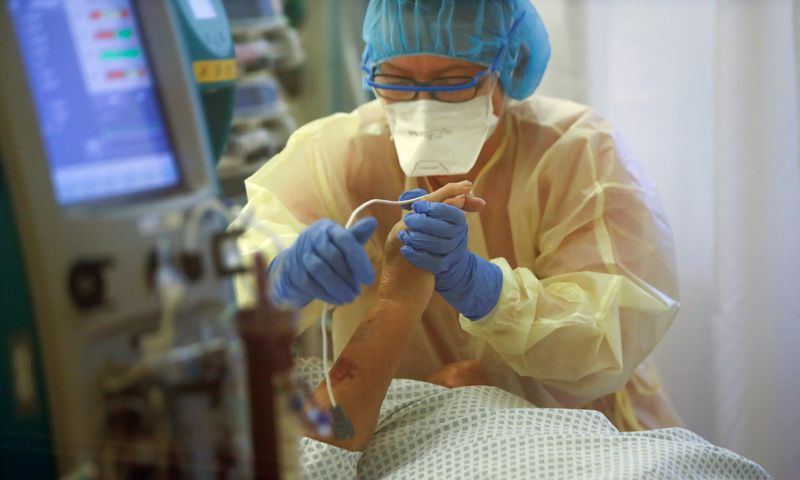BERLIN (Reuters) – The coronavirus pandemic will further shift the global balance of power in Asia’s favour, German Chancellor Angela Merkel said on Tuesday, as the health minister said he expected Germany to start rolling out vaccinations by January.
“The pandemic will set us back economically,” Merkel told a government digital summit, pointing to an economic revival in countries like China and South Korea where more people wore masks and there were fewer demonstrations against lockdowns.
“I believe this will lead again to another reordering of the regions,” she said, adding that Germany did not want to control its population in the way China did, but it did have to make more of an effort to keep up with technological developments.
Last month, German police fired water cannon and pepper spray in an effort to scatter thousands of protesters in Berlin angry at coronavirus restrictions.
Germany was widely praised for its response to the first coronavirus wave in spring, but it imposed lighter lockdown measures than neighbouring countries as a second wave hit Europe in November and infection numbers have stayed stubbornly high.
Schools remain open but private gatherings were limited to five people from Tuesday and fewer people are allowed in shops.
The official case tally rose by 13,604 on Tuesday to 1,067,473, while deaths were up 388 to 16,636.
The Bavarian city of Nuremberg tightened its rules on Tuesday to try to rein in a surge of the virus, forcing people to stay home unless they have a compelling reason until Dec. 20.
The European Medicines Agency (EMA) said earlier on Tuesday it planned to decide on whether to approve the vaccine being developed by Pfizer and BioNTech by Dec. 29, and by Jan. 12 on the shot being developed by Moderna.
“I assume that we will start being able to vaccinate in January at the latest,” German Health Minister Jens Spahn said on an online forum.
(Reporting by Thomas Seythal and Andreas Rinke, writing by Emma Thomasson; Editing by Andrew Cawthorne and Nick Macfie)






















